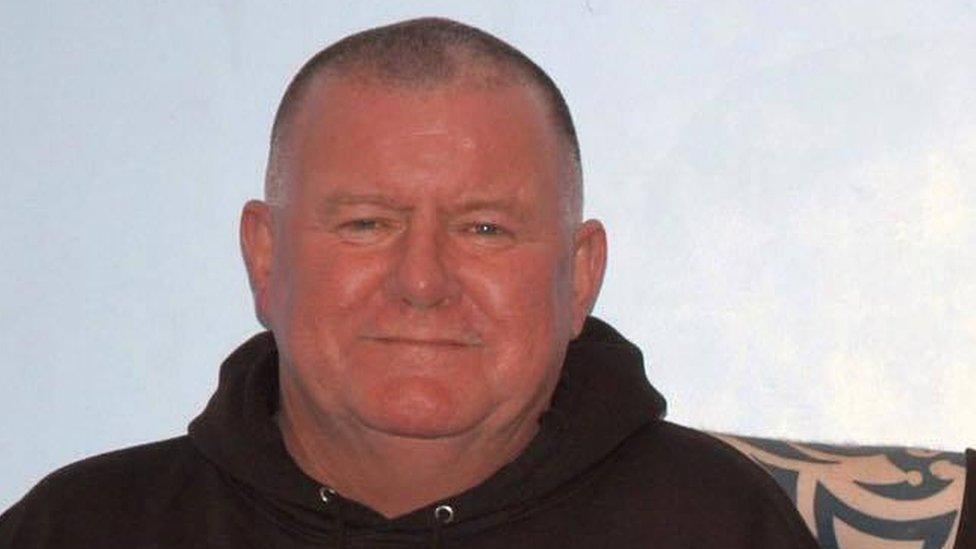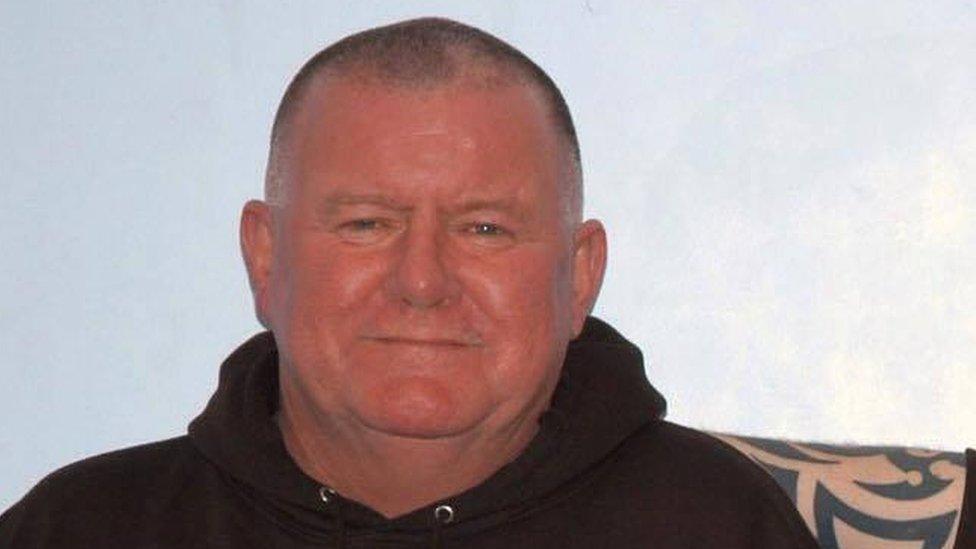Scottish trader accused of US fraud loses extradition battle
- Published

James Craig is accused of using Twitter to distort share prices
A man wanted by US authorities over his alleged involvement in a £1.1m shares scam has lost his legal battle to remain in Scotland.
James Craig, of Dunragit in Dumfries and Galloway, is accused of using Twitter to distort prices of firms on the Nasdaq exchange in January 2013.
After losing an extradition hearing, the 66-year-old challenged the decision at the Court of Criminal Appeal.
In a written judgement,, external three appeal court judges have upheld the decision.
Mr Craig is accused of creating fake Twitter accounts for reputable market research companies and spreading fraudulent rumours about other firms.
It is alleged he bought shares as they slumped in response to the lies - then sold them when the price recovered.
Mr Craig's legal team successfully argued in the Court of Session in 2018 that the UK government had acted unlawfully in failing to introduce a safeguard called the "forum bar" into Scots law.
The underlying aim of the provision is to stop extradition if the alleged offence can be tried in the UK and it is not in the interests of justice that the accused be sent abroad.
Earlier this year, lawyers for Mr Craig argued that their client's human rights would be breached if he was sent to the USA and the forum bar was not available as a defence to him.

Mr Craig has lost his latest legal battle against extradition to the US
They also argued that the sheriff who ordered Craig to be extradited to the United States - Sheriff Norman McFadyen - had misinterpreted the law when making his ruling.
However, in a written judgement issued at the Court of Criminal Appeal, judges Lady Dorrian, Lord Brodie and Lord Turnbull upheld Sheriff McFadyen's decision.
Dismissing the appeal, Lady Dorrian said: "For reasons of good policy, the United Kingdom allows the extradition of its nationals who are resident in and otherwise connected with the United Kingdom where their conduct has made them subject to the criminal jurisdiction of other territories.
"There is nothing in the sheriff's approach to consideration which amounts to an error. I propose that the appeal be refused."
Mr Craig's lawyers said they would appeal the decision to the UK Supreme Court.
- Published5 July 2019

- Published28 May 2019

- Published9 November 2015
